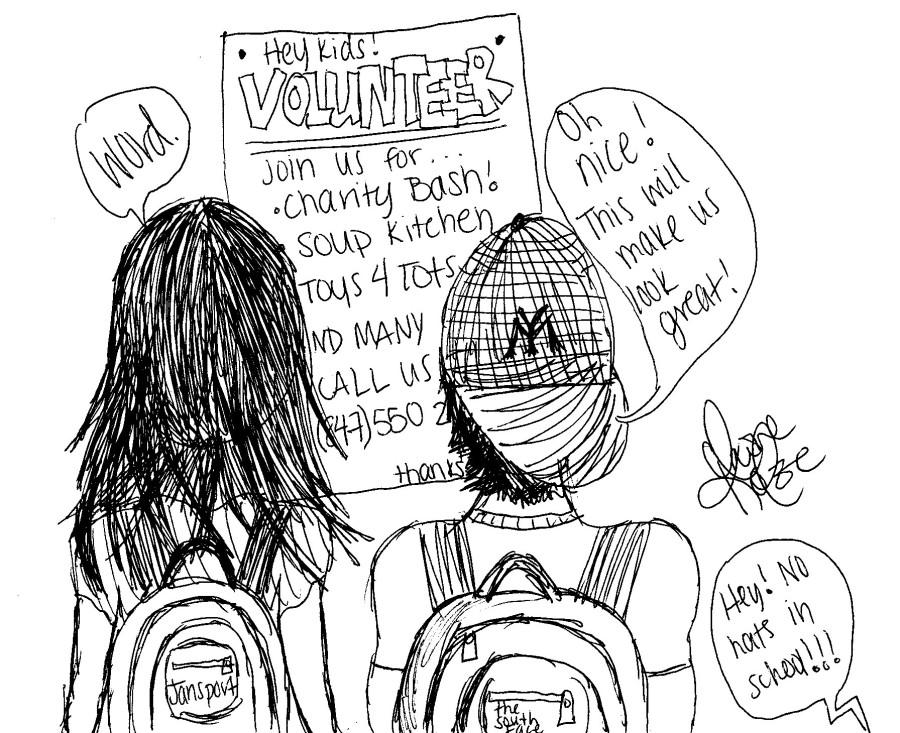Volunteering should be a part of everyone’s life at some point. The experience can be very rewarding, and service to those in need is admirable. However, students should not volunteer only because they are required to.
Many college applications ask for a list of extracurricular activities the applicant participated in, and volunteering is often on the list of activities that a student can include as part of his or her resumé. Some students become volunteers in the community or join volunteer-oriented clubs, such as Interact or Habitat for Humanity, solely because they need more items to list on their school applications.
This tendency causes problems for the organizations left without volunteers after the hours sheets have been signed. If students only sign up to volunteer because they need a better resumé, they will not continue helping after they complete the minimum amount of work possible. Instead of leaving expectedly, students need to follow through on their actions. Once they begin volunteering, they should continue beyond what is necessary in order to honor the commitment. Somewhere along the way, they may find they gained something more than a better resumé for college.
Kayla Back, senior, is one who learned the value of helping others through volunteer work. She volunteered at the Liberty Lakes tutoring program almost every day during the spring 2011 session.
“I would walk there every day because I really liked it,” Back said. “It’s such a great feeling to just be with the kids and help them grow and build relationships with them.”
Back signed up for the Liberty Lakes through the National Honor Society (NHS) in order to earn her required tutoring hours. She continued helping the kids with their homework and projects until the end of the session even though she filled her three hour requirement after only the first two weeks of being there.
“I don’t think that you should be doing it just because you’re in a club that wants you to. You can’t just go every once in a while,” Back said. “You can’t hop into someone’s life and expect them to be grateful to you even though your intentions are just to look better. You should be going because you want to build a relationship with the kids. They deserve better than that.”
Parents and elementary schools should be fostering a desire for service in children. If they learn how rewarding helping others can be at a young age, when they reach high school they will join service-based clubs because they honestly want to help. These are the volunteers who make true differences in the lives of others, which is what service is all about.

